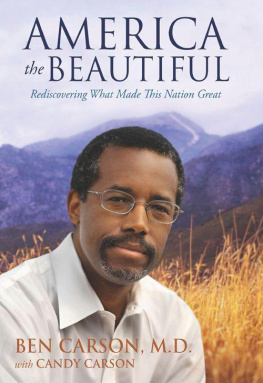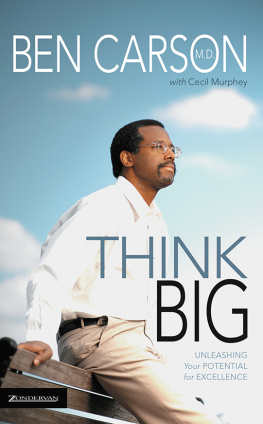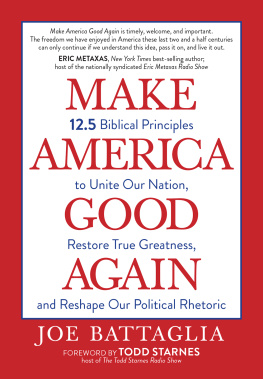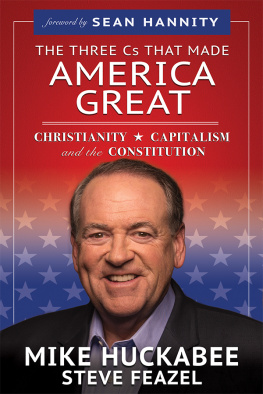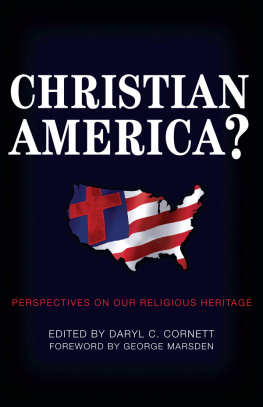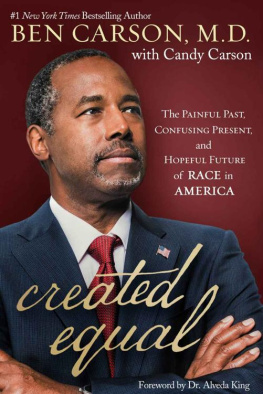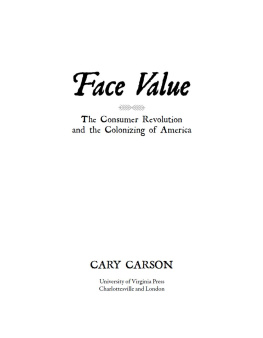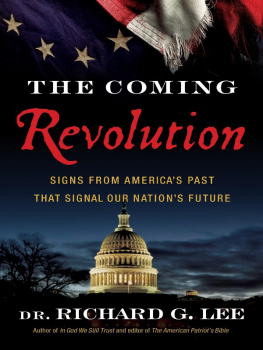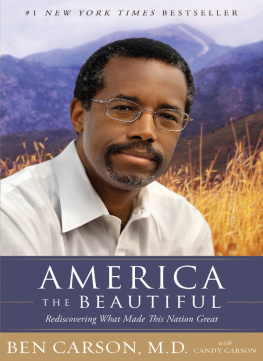14. W HAT D O W E B ELIEVE AND IN W HOM D O W E T RUST ?
T HE U NITED S TATES OF A MERICA is still the pinnacle nation in the world today. It is not, however, the first pinnacle nation to face a decline. Ancient Egypt, Greece, Rome, Great Britain, France, and Spain all enjoyed their time at the top of the world, so to speak in many cases, for several hundred years. Then, as they began to decline, they all experienced some peculiar similarities: an inordinate emphasis on sports and entertainment, a fixation with lifestyles of the rich and famous, political corruption, and the loss of a moral compass.
One certainly sees this pattern being repeated in American society today, and if we continue to follow the course of other pinnacle nations prior to us in history, we will suffer the same fate. The question is, can we learn from the experiences of those nations that preceded us and take corrective action, or must we inexorably follow the same self-destructive course?
What was it about the United States of America the child of every other nation that was so different and so dramatically changed the world? For within only two hundred years of the founding of this nation, men were walking on the moon, creating artificial intelligence, and inventing weapons of mass destruction, among other things. In its relatively short history, America has transformed humankinds existence on earth. Among the many factors involved in our success was the conscious creation of an atmosphere conducive to innovation and hard work. People cared about their neighbors, and when some became fabulously wealthy, they were willing to share their proceeds with those less fortunate. There was a sense of community, which meant that everyone was responsible for everyone else, including the indigent. But perhaps most importantly, there was a well-defined vision for the nation.
For the first time in the world, a nation was envisioned that was of, by, and for the people. This meant that there would be a great deal of individual, family, and community responsibility for everyones lives, as opposed to government responsibility. This also meant that there would be unprecedented freedom to lead ones life without interference. A legitimate question for America to ask itself at this point in history is, do we still agree with the vision of the founding fathers? Or have we become much wiser than they were and therefore feel the need to adopt a different vision? Perhaps it is better to invest the government with great power and with the responsibility for taking care of all of us. We will consider both questions in this book.
If one goes back and looks at the belief system of many of our founding fathers, the faith they had in God, exemplified in both their words and deeds, is impressive. Some will argue that the United States has never been a moral nation because we engaged in slavery, and this certainly is an ugly chapter in our nations history, one that we will also examine as we seek to understand what it is that makes America beautiful.
Unfortunately, many today have come to equate morality with political correctness, but I believe that political correctness is a very dangerous force. Many people fled to this country from other countries where dictators and oppressive governments tried to tell people what they could think and what they could say. The ability to think and speak freely was one of the major tenets upon which this nation was established, and I suspect that the founding fathers would turn over in their graves if they could see how such tenets are being violated on a regular basis today by people adhering to political correctness. If people cant freely speak their minds, conversations become muted and debate withers.
In this book, we will examine whether we can advance the great experiment that is the United States of America, perpetuating a free and prosperous nation that is of, by, and for the people, and whether we can learn from the mistakes of our past. If we can, rather than seeing the decline that has characterized all other pinnacle nations before us, I believe our best days will still lie ahead of us.
A MERICAS H ISTORY
OF R EBELLING FOR
C HANGE
O F ALL THE NATIONS IN THE WORLD, of all the social experiments that have been tried down through the centuries, there is no country Id rather be a citizen of and call home than America. Where else but in this land of opportunity are people given so much freedom to pursue their dreams, with the potential to bring out the best in everyone?
I have been fortunate enough to visit forty-nine of Americas fifty states, and I never cease to be amazed by the tremendous diversity one finds here from big metropolitan cities to small countryside towns, from tropical islands to forested mountain ranges. Vast expanses of farmland produce more than enough food to feed our nation, and huge industrial areas produce airplanes, trains, cars, washing machines, and a host of other devices. The creative innovations of Silicon Valley and Seattle give us technological strength, and the great Northeastern corner of our country boasts some of the most prestigious educational institutions in the world. Add to that our ethnic and cultural diversity one of our greatest strengths and you begin to see how this nations diversity enabled it to rapidly become a world power.
Does America have its flaws? Absolutely. Weve certainly made our share of mistakes over the centuries and then some. But in spite of our missteps, our nations history shows that out of our darkest periods, we have responded time and time again to work toward liberty and justice for all. One of Americas most respected legacies is indeed that of rebelling for change.
I grew up in inner-city Detroit and Boston at the tail end of one of those dark periods in Americas history. Slavery had long been abolished, but widespread racism remained. The civil rights movement was on the verge of completely transforming the social landscape, but such change often comes slowly. And today, decades later, I can still pinpoint the moment when I came of age regarding racism in America.
My brother and I were playing in Franklin Park in the Roxbury section of Boston when I wandered away alone under a bridge, where a group of older white boys approached me and began calling me names.
Hey, boy, we dont allow your kind over here, one of them said. He looked at the others. Lets drown him in the lake. I could tell they werent just taunting me, trying to scare me. They were serious, and I turned and ran from there faster than I had ever run before in my life. It was a shocking introduction for a little boy to the racism that ran through America at the time.
Growing up, we faced constant reminders of how we were less important than white people. Even some of those who claimed to be civil rights activists could be heard saying such things as, He is so well educated and expresses himself so clearly that if you were talking to him on the telephone you would think he was white.
By that time, economic hardship had forced us to move to Boston, and we were living with my mothers older sister and brother-in-law in a typical tenement, where rats, roaches, gangs, and murders were all too common. One day my uncle William was giving me a haircut in the kitchen while we watched the news on television when I saw white police unleashing ferocious dogs on groups of young black people and mowing them down with powerful water hoses. Even little children were being brutalized.

